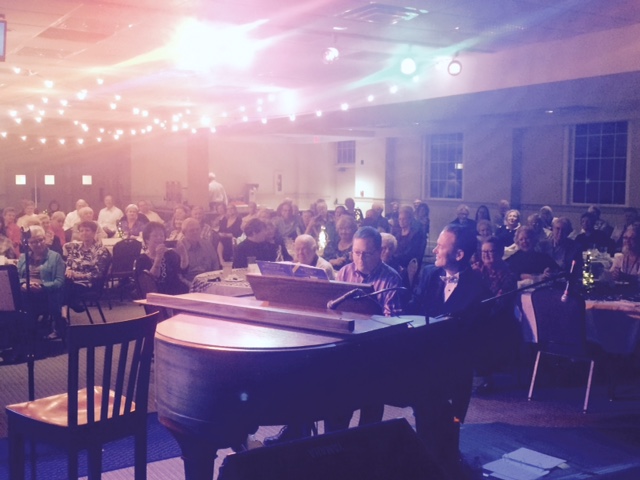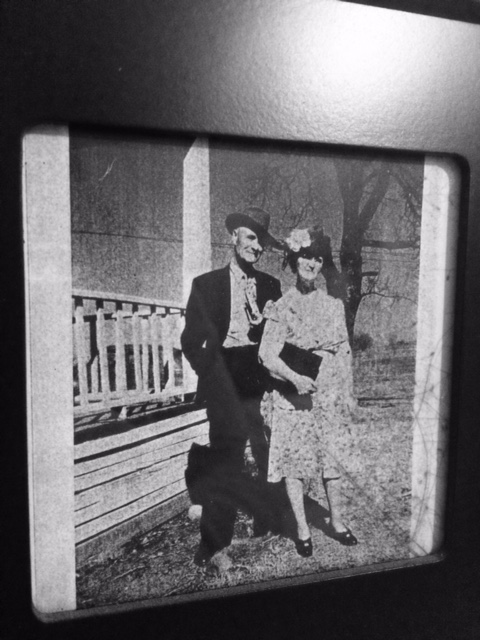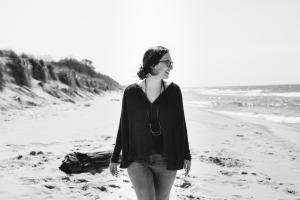
Last Friday I attended a cabaret show at our church- a fabulous dinner around bottle-lit tables and Cole Porter tunes.
I suppose I was the youngest one there besides my four year old dinner date, which gave me a wonderful perspective for the evening.
As the jazz songs that I’ve always loved played on, I watched as smiles and memories flashed across the faces in the room around me.
I remembered that this was a moment to be treasured. To be a part of a multi-generational body or community is no small thing. I believe it holds tremendous necessity for our well-being;
how will I know how or when to go if I am not shown by another life well lived?
These interactions with my elders are usually short snippets on a Sunday morning, but I’m learning to hold them inside me, sacred spaces that I can call to when I need to remember my way.
In many Native American and African tribes, the family line is matriarchal, which means everything flows through the women of the family, and the highest honors are given to the elderly grandmothers and great-grandmothers, who hold the wisdom of their people for generations to come.
I do not have those elders in my life right now. I am without a Cherokee, Chickasaw or Potawatomi ancestor to turn to with the questions for my journey.
So I set myself at the feet of the women I know I can be close to, those who are already here— the ones who know this land and its people, who take stock in my community, church, and personal well-being.
And as it tends to happen in the human condition, we won’t always agree; but our hearts, if they are brave and willing enough, will move far beyond our desire to remain solitary.
It is no secret that the church is confused and divided. But I believe we can heal wounds and undo the wrongs that have been done, because it is necessary that we come together around the most important spaces in our history and culture. We meet each other at the table, across the room, in the middle of the week to learn what we do not know from each other.
We must share our stories and open up dialogue and become one again, and with every mesh of our spirits, a foundation is built that will hold strong for decades to come.
We must cultivate respect, and out of that respect, lead the community around us into a beautiful reality:
that despite age gaps, race, denomination, or money in the bank, it is the stories that give us life.
And as it happens, the women I learn to love will learn to love me,
and in loving and seeing one another, we begin to heal our untended wounds.
And we know that when one wound heals, it breathes room for another, and another, and another, healing heaped upon healing to restore something good to all of us.

My Grandma Downing died when I was a teenager, and at her funeral I learned things about her I’d never known.
What I knew was what I’d seen as a child:
that she loved her living room recliner and crossword puzzles and watching Jeopardy! and Wheel of Fortune on the kitchen television; that she made biscuits like no one else I’ve ever known; that her pearls and hair pins were a treat to play with at her bedroom vanity.
But I did not know her stories or her history, the history that indeed is saving me today.
I did not sit at her feet and see the sacred lineage of Jesus in her eyes.
I did not know, so I did not weigh its importance in myself, that those moments would stay with me for the rest of my life and lead me long after she had passed from my presence.
So we know what we can hold to in this moment, in this era, in this season of political angst and horrifying racial tensions.
We hold onto history, and we let it teach us, and the best way history can teach us what we need to know and lessons we need to learn is by the people who’ve lived it, the oldest of the oldest who know that the path stretched far before them and will keep stretching far beyond.
They are our teachers, and our best lessons are found in the dust that they leave as we follow behind them and bask in the mystery of their presence in our lives, mystery that will hover over us in all the days to come.















